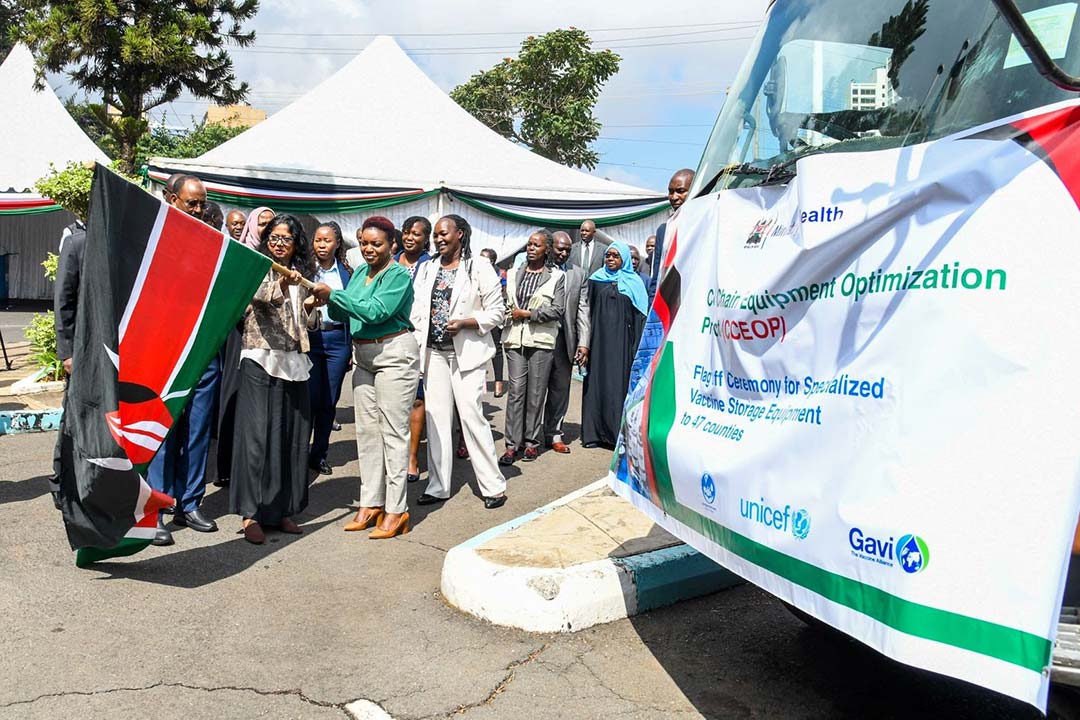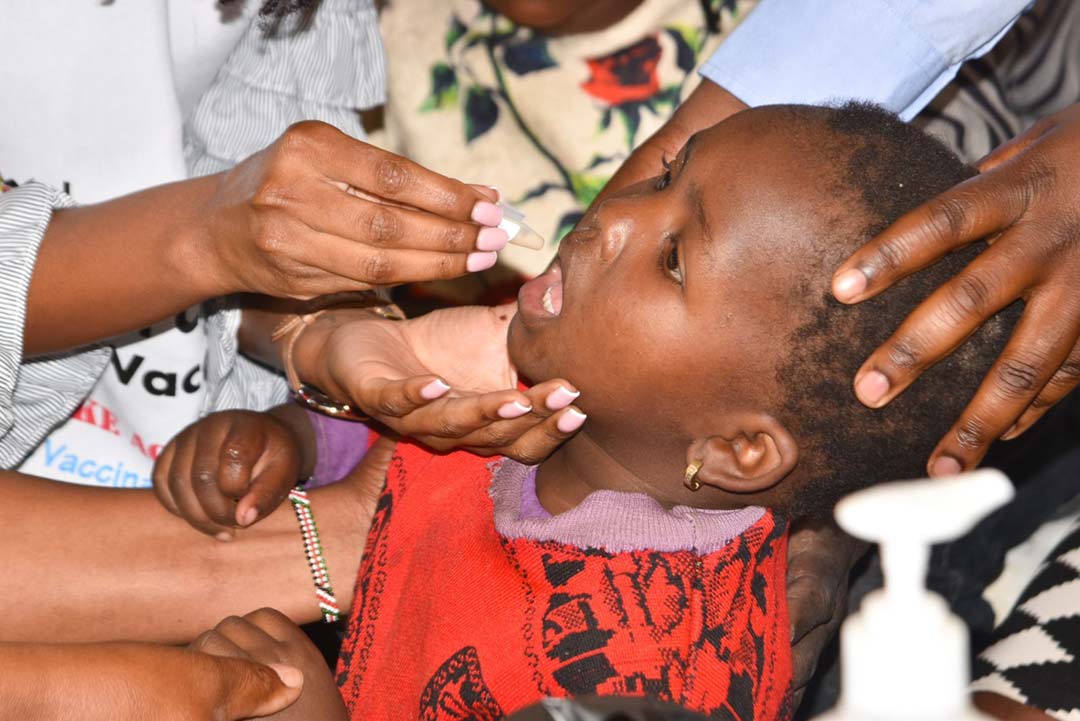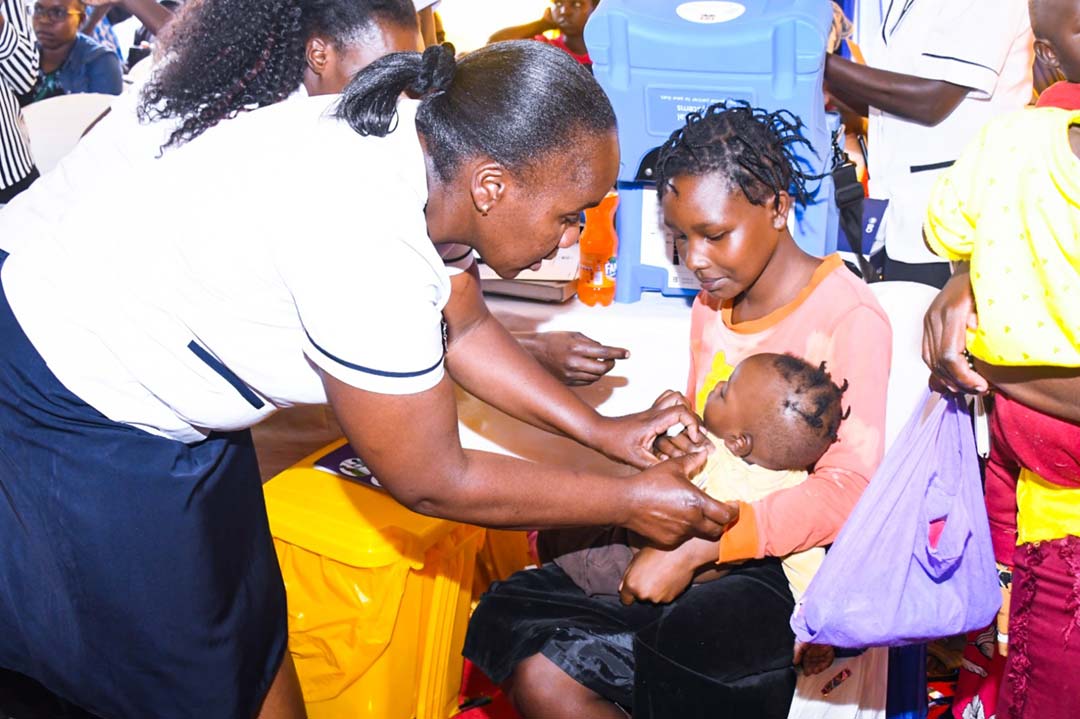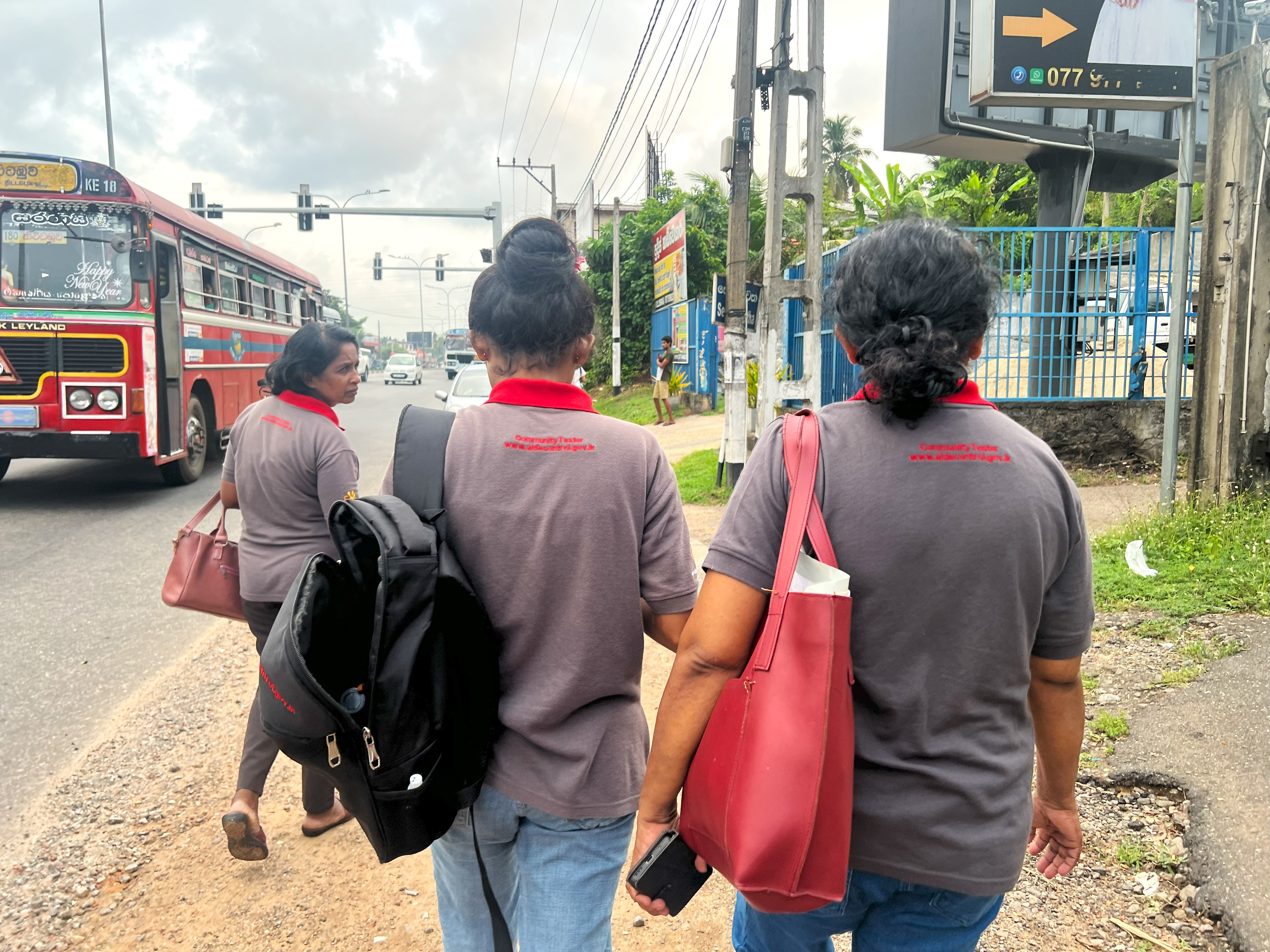Surge in cases prompts vaccine drive and return to mask-wearing in Kenya
A surge in COVID-19 infections has prompted a mass vaccination drive throughout Kenya.
- 5 August 2022
- 4 min read
- by Mike Mwaniki

On 2 June, Kenya’s Ministry of Health, in conjunction with the Nairobi Metropolitan Services, launched an accelerated COVID-19 vaccination campaign, the first in the country.
Speaking during the launch, held at Nairobi’s Kibra level 3 hospital, the Health Ministry’s Public Health director, Dr Francis Kuria, said that the lifting of restrictions has seen the number of new COVID-19 infections rise.
Kenya faces a worrying re-emergence of COVID-19 cases a few months after the government relaxed some of the restrictions that had been imposed for two years.
“We are worried that the COVID-19 numbers are going up and we are, therefore, urging Kenyans to have their masks on,” Dr Kuria said as the ministry launched the new vaccination exercise in Nairobi, targeting 800,000 fresh high school graduates.
Before the new campaign was initiated, Dr Kuria noted that the rate of infections had been rising in the four weeks prior, hitting a high of 5.6% and an average of 3.3% weekly, a trend he attributed to the failure of the general population to wear masks.
Health Ministry Principal Secretary, Susan Mochache, has been urging parents and guardians to encourage teenagers to get vaccinated as a way to protect the more vulnerable senior citizens against COVID-19.
She says that the government’s target is to vaccinate 27,246,033 of the adult population and 50% of the teenagers by the end of the year.
As of 18 July 2022, a total of 19,116,765 vaccines had been administered across the country. Of these, 16,930,163 were doses administered to the adult population (18 years and above). The proportion of adults fully vaccinated was 32.3%.
Mochache notes: “Kenya faces a worrying re-emergence of COVID-19 cases a few months after the government relaxed some of the restrictions that had been imposed for two years.”
All the country’s 71 Kenya Medical Training Colleges, which host more than 50,000 students, have been used as vaccination centres to enable as many youths, including the students, to be vaccinated.
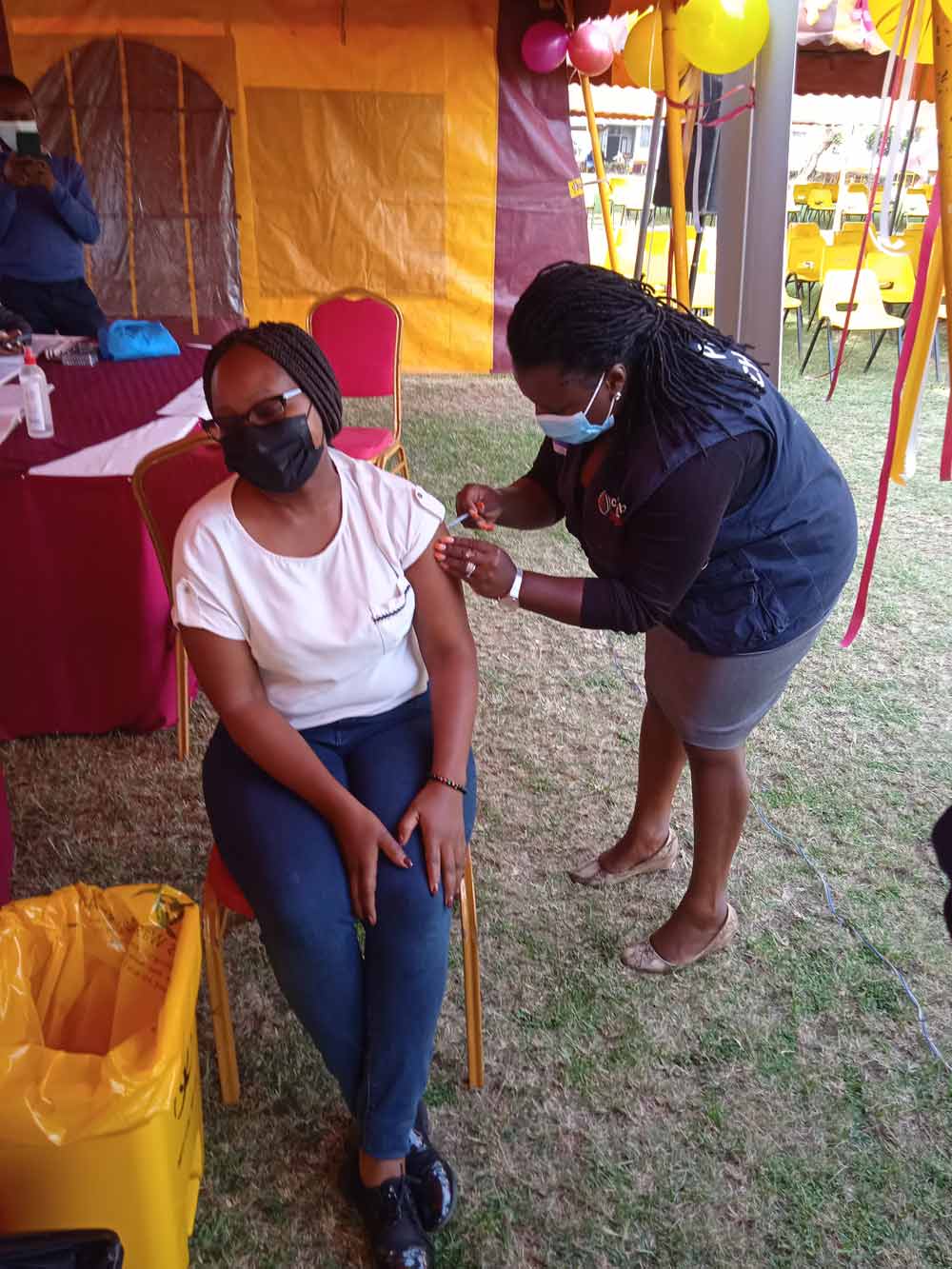
Credit: Mike Mwaniki.
Nurse Eunice Gathitu urges everyone eligible to be vaccinated, including health care workers. “I have just received my booster jab and am looking forward to working with confidence as we accelerate the vaccination campaign,” she says.
Towards the end of June, Health Ministry Cabinet Secretary Mutahi Kagwe announced the resumption of the mandatory wearing of face masks in closed spaces such as public service vehicles, aircrafts, offices, supermarkets, marketplaces and places of worship.
Have you read?
Towards the end of June, Health Ministry Cabinet Secretary Mutahi Kagwe announced the resumption of the mandatory wearing of face masks in closed spaces such as public service vehicles, aircrafts, offices, supermarkets, marketplaces and places of worship.
The Ministry, however, clarified that the wearing of masks in open public spaces remains optional.
“Over the last few weeks, the country has witnessed a steady rise in the number of new cases and a slow rise in the overall positivity rate from a weekly average of 0.6% at the beginning of May 2022 to a weekly average of 10.74% in the week ending 19 June,” Kagwe said in a press conference, expressing concern that Kenyans had become too casual in dealing with the disease.
Although the Cabinet Secretary says that indoor meetings can continue at full capacity, all participants should be fully vaccinated, and show proof of it and wear face masks. In-person worshipping would also continue as long as all the congregants and worshippers are vaccinated and wear masks inside the places of worship.
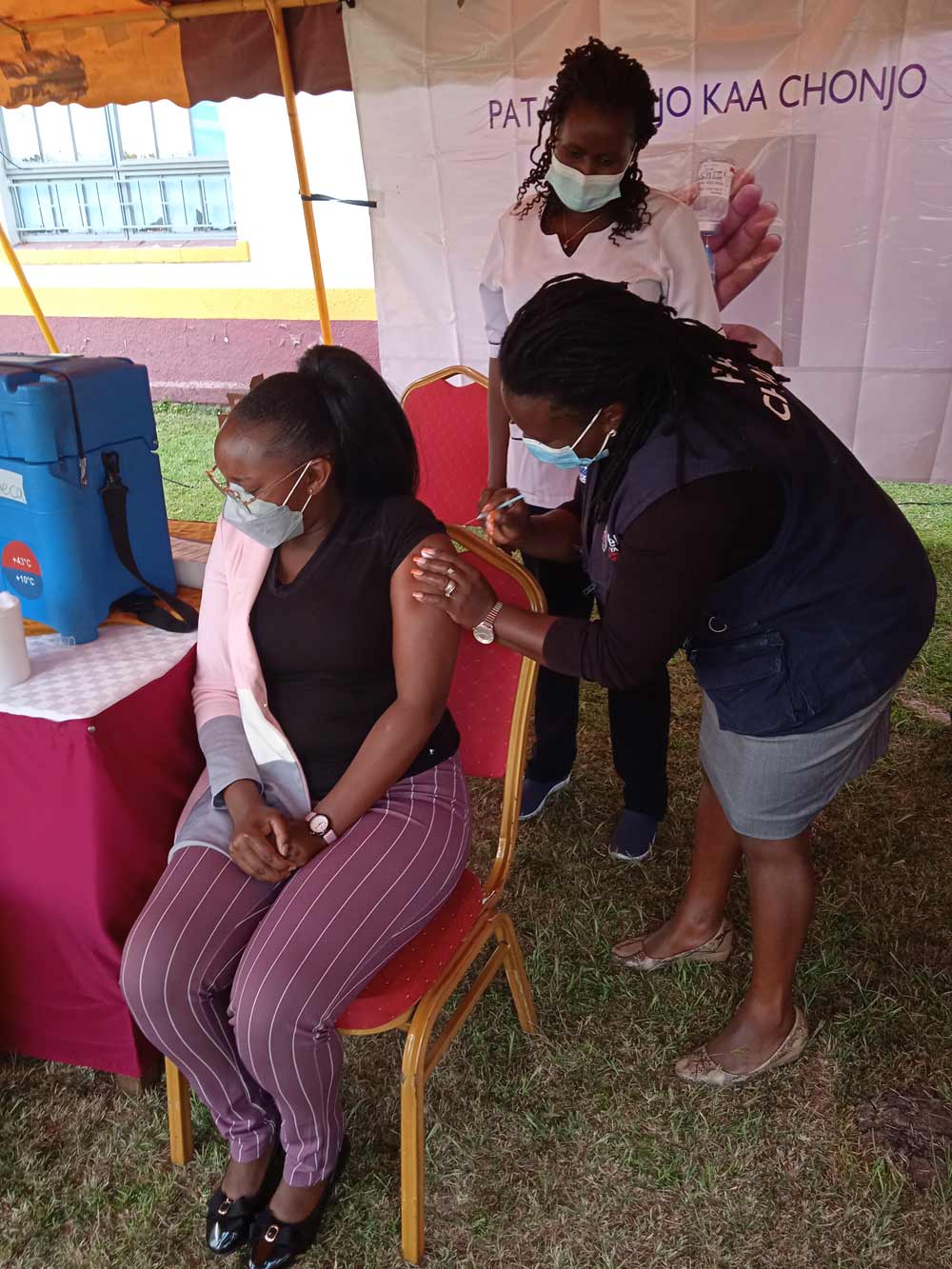
Credit: Mike Mwaniki.
“International travellers who are fully vaccinated are exempted from the requirement of a PCR test and quarantine… However, all unvaccinated travellers arriving at port of entry will be required to be in possession of a negative COVID-19 PCR test conducted not more than 72 hours before departure regardless of the route of entry. They will also be subjected to a rapid antigen test at their own cost.”
He warned of an increase in COVID-19 cases and other respiratory diseases during the ongoing cold season in the country, adding that, “It is important for us to appreciate that we are faced with a number of challenges. The first one is that we are in a political season where everybody is out there in gatherings.”
Kenya will hold a general election on 9 August and campaign meetings are being held in various parts of the country on a daily basis.
The Cabinet Secretary appealed to eligible Kenyans to get vaccinated following reports that inoculation against the disease had continued to register low turnout.
“I would also like to appeal to political leaders to urge their supporters to get vaccinated and wear face masks during campaign rallies.”
